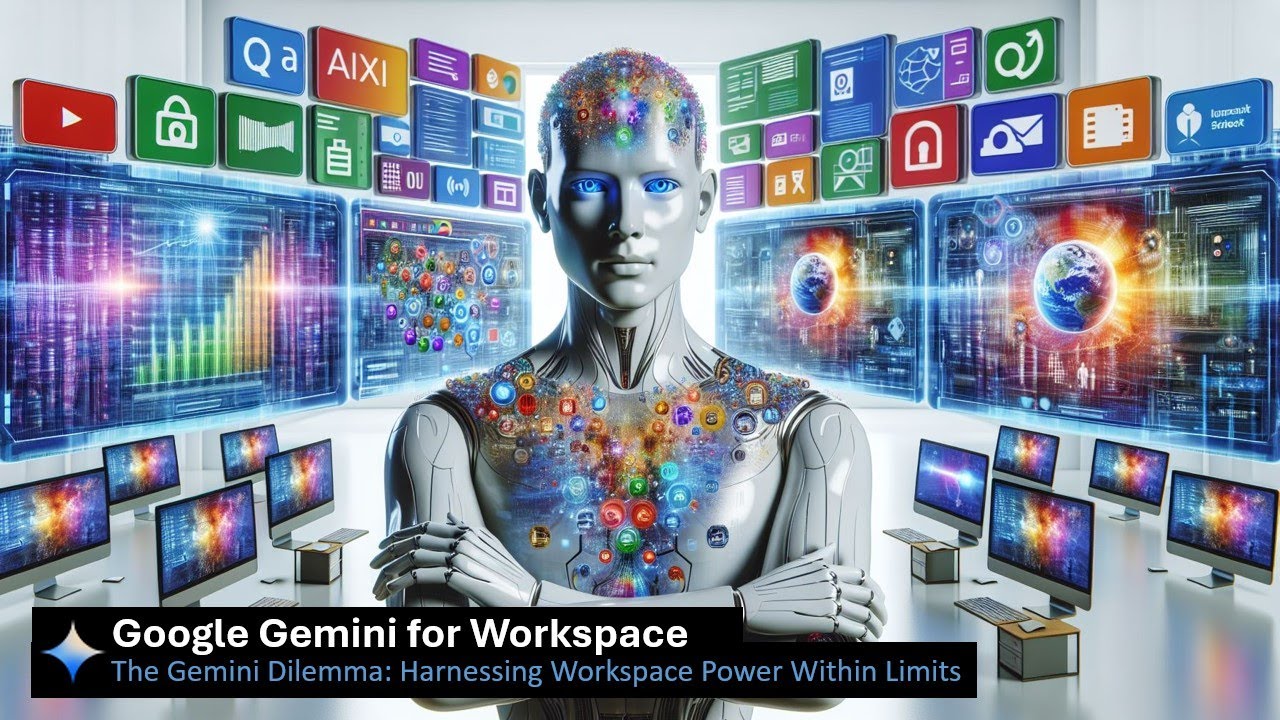Does Google Penalize AI Content? New SEO Case Study (2024)
Summary
TLDRThe video script explores whether Google penalizes AI-generated content. It concludes that while Google does not penalize AI content per se, it has taken action against websites using spammy AI-generated content. The study of 487 search results indicates a preference for human-generated content. Google's algorithm updates suggest the ability to detect low-quality AI content, leading to de-indexation or underperformance. The script advises using AI responsibly, focusing on quality and originality, and aligning content with user intent for SEO success.
Takeaways
- 🔍 Google does not penalize AI content per se, but it has taken manual actions against websites using spammy AI-generated content.
- 📊 A study of 487 Google search results showed that 83% of top results are not using AI-generated content, suggesting a preference for human-generated content.
- 🤖 Google's algorithms can detect some AI-written content, and recent updates have led to de-indexation of low-quality AI-generated content.
- 🚫 Google's spam update has targeted websites with autogenerated content, emphasizing the importance of quality over quantity.
- 💡 Google's algorithm favors user-generated content (UGC) like Reddit and Quora, possibly because it doesn't resemble AI-generated content.
- 🧠 Google has its own large language model, Gemini, and is capable of detecting low-quality AI-generated content.
- ⚙️ Google cannot roll out overly aggressive algorithmic changes due to potential collateral damage, focusing instead on targeting the lowest quality content.
- 📝 AI content tools should be used correctly, with a focus on creating content that is original and of high quality.
- 📈 The primary purpose of content should be to help users achieve their goals, not just to gain search rankings.
- ✍️ Keyword stuffing and over-optimization should be avoided; instead, focus on creating naturally written, topically relevant content.
Q & A
Does Google penalize AI content according to its policies?
-Google does not penalize AI content as per its policies, but it has taken manual actions against websites using spammy AI-generated content.
What percentage of top Google search results are not using AI-generated content?
-83% of the top Google search results are not using AI-generated content, as found in the study of 487 competitive keywords.
Can Google's algorithm detect AI-written content?
-Recent algorithm updates suggest that Google can detect autogenerated content created by large language models (LLMs), as evidenced by mass de-indexation of websites.
What happened to the AI-generated content for the keyword 'SEO training Houston'?
-The AI-generated content for 'SEO training Houston' was completely removed from Google's index after recent updates due to being low-quality.
Why did replacing AI-generated content with human-generated content lead to reindexing and ranking in the top 10?
-Replacing AI-generated content with high-quality human-generated content led to reindexing and ranking in the top 10 because Google's algorithms favor original, human-written content.
What is the speculated reason for Google's preference for user-generated content (UGC)?
-Google's preference for UGC is speculated to be because it doesn't resemble content generated by LLMs, which are often of lower quality.
How does Google's own AI technology, Google Gemini, factor into its ability to detect AI-generated content?
-Google Gemini, being one of the most sophisticated large language models, suggests that Google has the capability to detect low-quality AI-generated content, although it may not detect AI content that closely resembles human writing.
What is the recommended approach to using AI content tools without being penalized by Google?
-The recommended approach is to use AI content tools to create a first draft, then have a human editor revise and personalize the content to ensure originality and quality.
What is the primary purpose of creating content according to the script?
-The primary purpose of creating content is to help someone get closer to their goals, not just to achieve search rankings.
Why is focusing on content quality over publishing velocity important for sustainable SEO results?
-Focusing on content quality over publishing velocity is important because Google's algorithm, including the helpful content system, rewards high-quality content and punishes low-quality content.
How should one use AI content tools like rankability without over-optimizing content?
-One should use AI content tools like rankability to identify relevance gaps and focus on narrowing topic gaps rather than obsessing over exact keyword phrases.
Outlines

此内容仅限付费用户访问。 请升级后访问。
立即升级Mindmap

此内容仅限付费用户访问。 请升级后访问。
立即升级Keywords

此内容仅限付费用户访问。 请升级后访问。
立即升级Highlights

此内容仅限付费用户访问。 请升级后访问。
立即升级Transcripts

此内容仅限付费用户访问。 请升级后访问。
立即升级浏览更多相关视频

Get Paid $100+ Again & Again Using GOOGLE + AI (FREE)

Is AI Content Detectable? And does Google even Care?

How To Generate UNLIMITED E-BOOKS With AI (massive opportunity 💪)

I Tried Making Money from Viral AI Side Hustles (Real Results)

yapay zekânın yarattığı eserlerde telif hakları kime ait ?

Google Gemini for Workspace ✨ The Gemini Dilemma: Harnessing Workspace Power Within Limits
5.0 / 5 (0 votes)
